Daesh terrorists arrested in Iraq's Anbar, Nineveh, as army pledges to ‘shake the earth’ under their feet
Iraqi forces have detained more than 20 Daesh (ISIS) elements in the provinces of al-Anbar and Nineveh bordering Syria, after the army warned that the security of Iraq and Iraqis is a red line that cannot be compromised.
In a statement issued on Monday, Nineveh police said they had captured a terrorist, named Abu al-Baraa, after receiving intelligence and conducting an extensive investigation.
Baraa was arrested in Mosul’s al-Sukar neighborhood, the statement read, adding that 13 other Daesh militants were also taken into Iraqi police custody.
An Iraqi security source said that another key terrorist, identified as Hazal al-Jahishi, had been arrested in Nineveh’s Zummar subdistrict.
Separately on Monday, Major General Yahya Rasoul, spokesman for the commander-in-chief of the Iraqi armed forces, announced that a six-member Daesh cell had been identified and detained in the cities of Ramadi and Fallujah in al-Anbar Province.
He also noted that another terrorist was arrested in Abu Ghraib district in Baghdad Province.
The fresh round of operations against Daesh come days after the Iraqi Army pledged to “shake the earth under the feet of the wicked [Daesh] cowards,” following an attack by the terrorist group in Diyala Province that left more than 30 people dead or injured.
“Terrorists will soon face a fair retribution and they will not be able to endanger the security of Diyala,” the statement read. “The security of Iraq and Iraqis is a red line that cannot be joked about.”
Hashd al-Sha’abi, also known as the Popular Mobilization Units (PMU), which has been playing a key role in fighting terrorists in Iraq, has stated that Daesh elements have been equipped with advanced weapons in recent months.
Iraq declared victory over Daesh in December 2017 after a three-year counter-terrorism military campaign, which also had the support of neighboring Iran.
The terrorist outfit’s remnants, though, keep staging sporadic attacks across Iraq, attempting to regroup and unleash fresh violence in the Arab country.
Daesh has intensified its terrorist attacks in Iraq since January 2020, when the United States assassinated top Iranian anti-terror commander General Qassem Soleimani and Hashd al-Sha’abi deputy commander, Abu Mahdi al-Muhandis, near Baghdad International Airport.
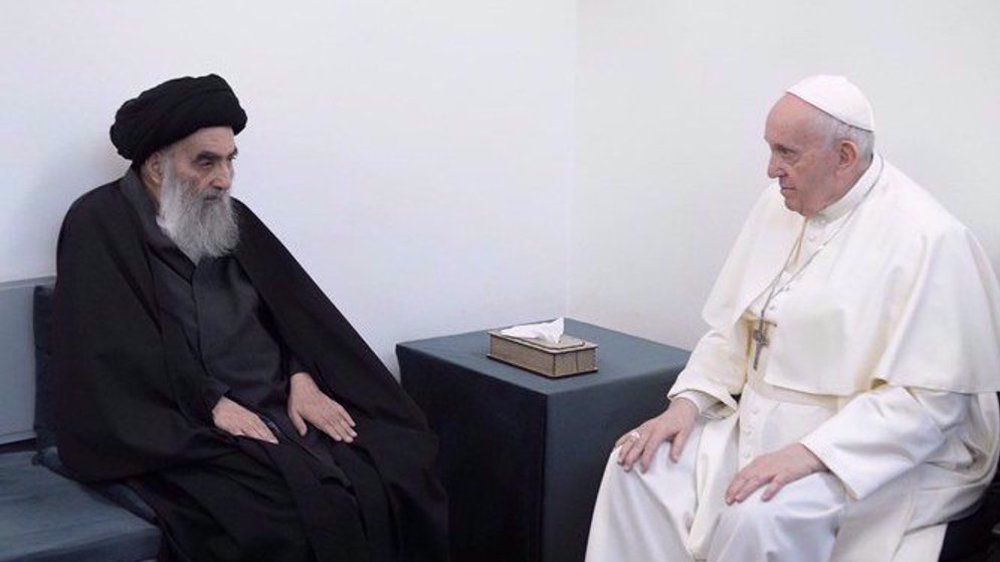
Ayatollah Sistani offers condolences on passing of Pope, hails his role in promoting peace
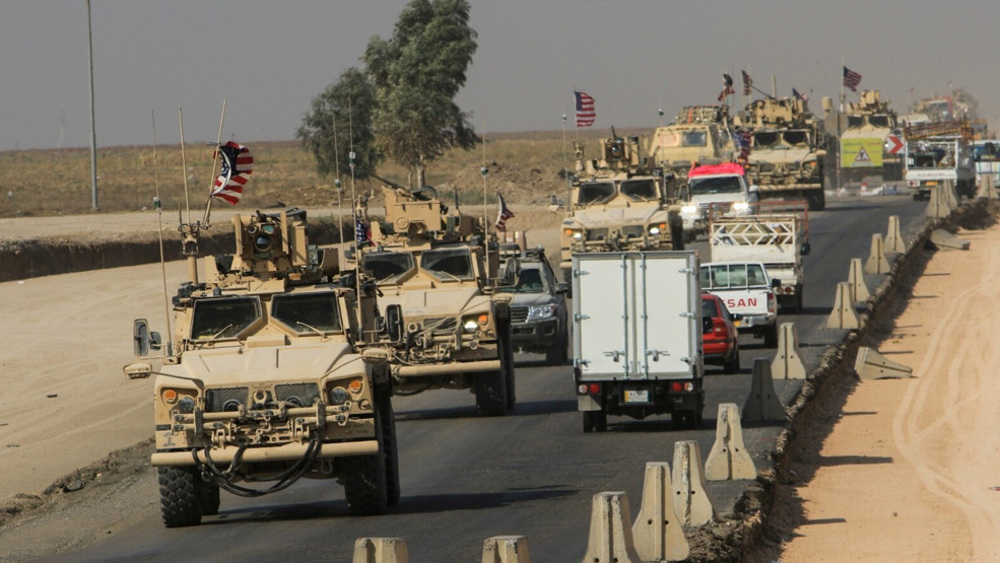
US arms convoys enter Iraqi Ain al-Asad base from Syria: Report
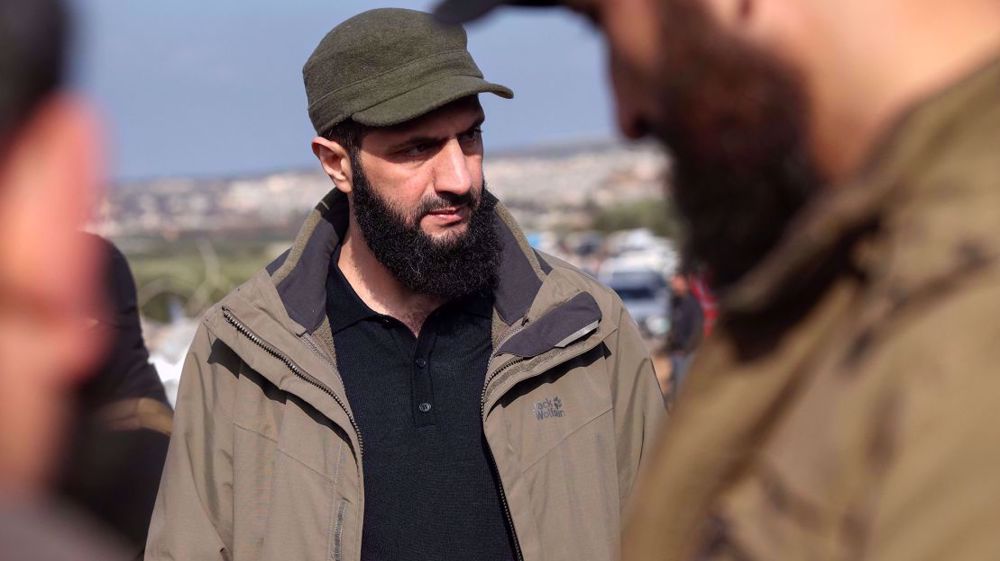
Syria’s self-proclaimed president can be arrested if he visits Baghdad: Iraqi figure
Iran unveils legal strategies for SCO states to counter challenges
Gaza’s slow death: How aid blockade has pushed Palestinians to the brink
US plan requires Ukraine to give 20% of territory to Russia: Report
Iran: New sanctions show US 'lack of goodwill' in talks with Tehran
Charred bodies found in school as Israeli strikes kill dozens in Gaza
VIDEO | Press TV's news headlines
The April Revolution: One-year anniversary of Gaza solidarity encampments in US
Pezeshkian hails Iran-Azerbaijan ties ahead of visit to Baku


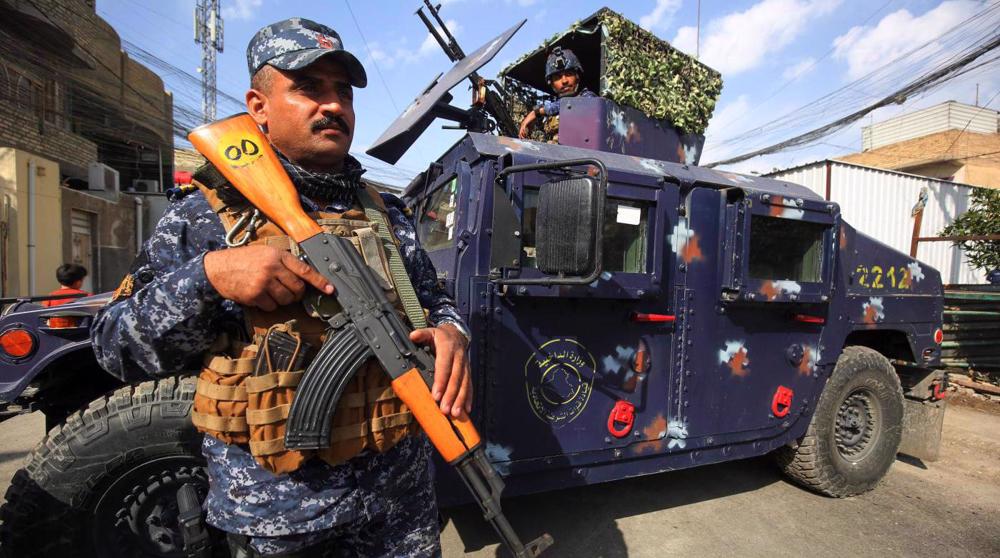
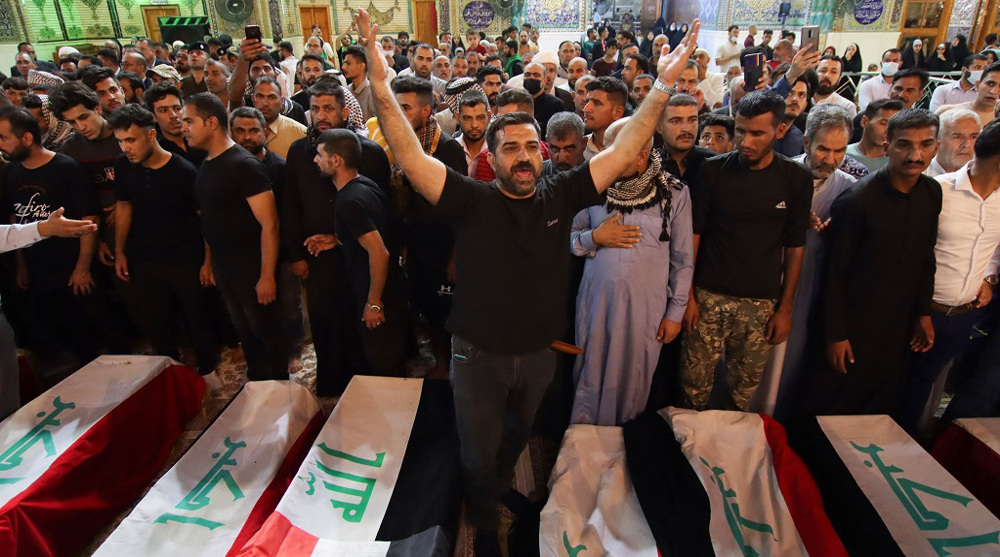



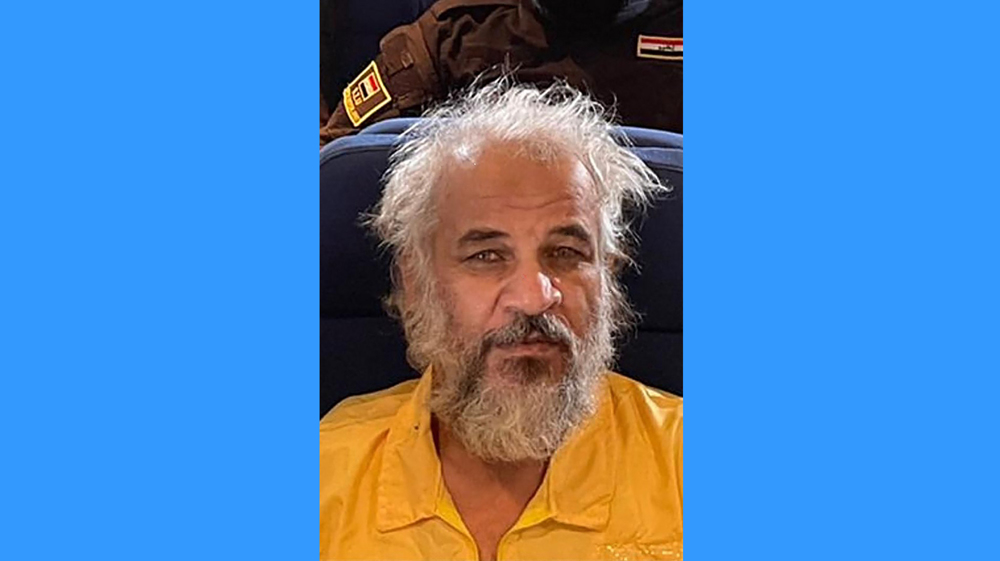
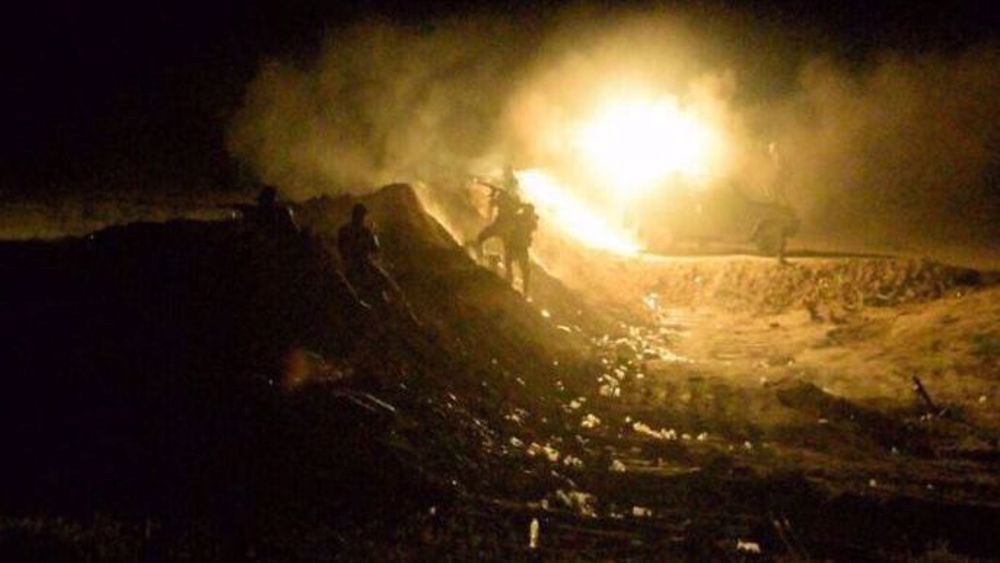
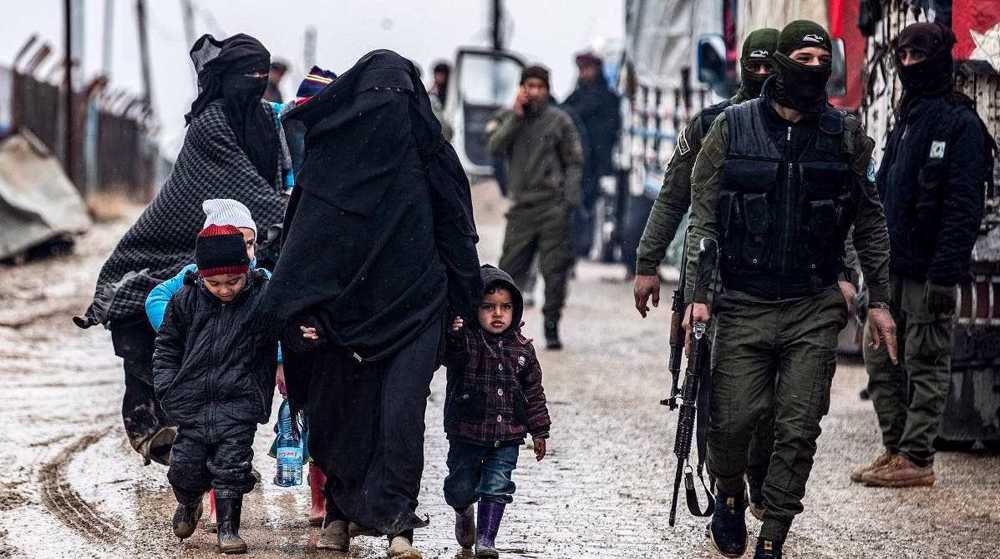
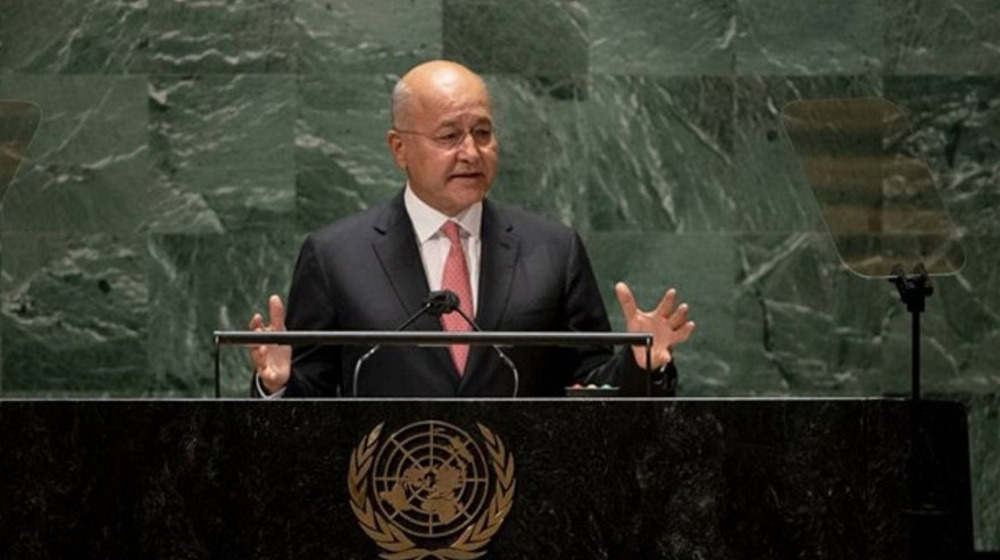

 This makes it easy to access the Press TV website
This makes it easy to access the Press TV website